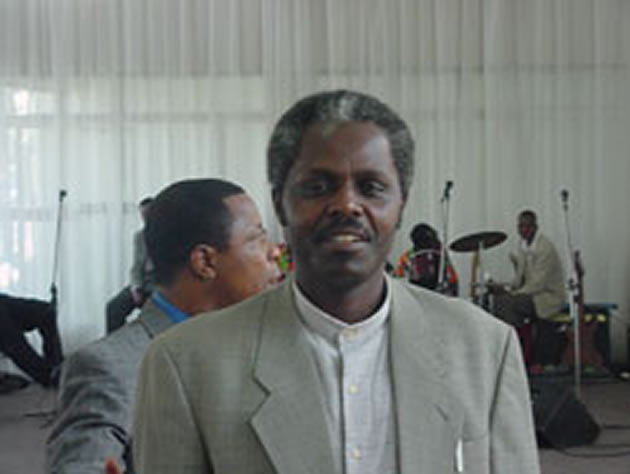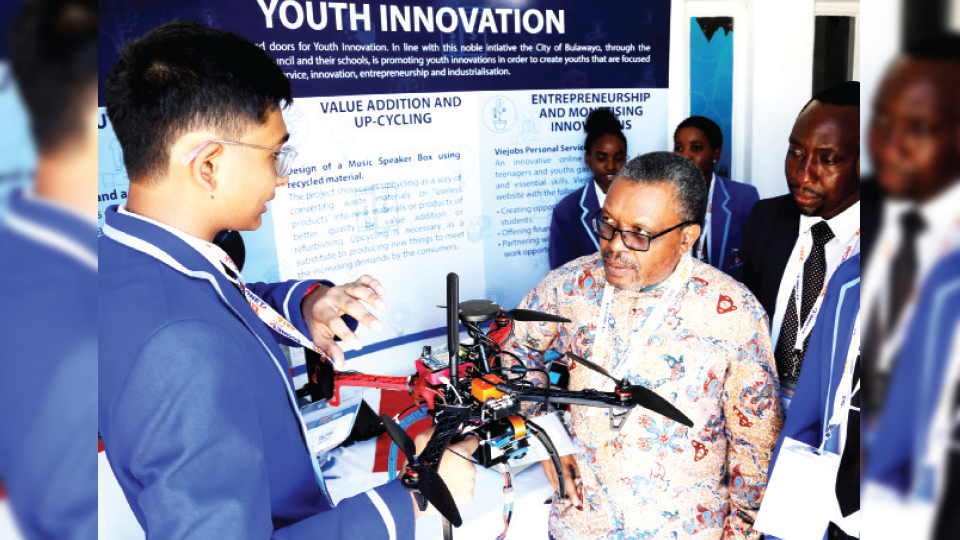Diplomats urge Africa to remain united

Harare Bureau
Zimbabweans join the rest of the continent today in commemorating the 52nd anniversary of the African Union (formerly Organisation of African Unity). Africa Day comes amid calls by African diplomats accredited to the country for the continent to remain united if it is to solve economic and political challenges created by Western interference.
In separate interviews yesterday ahead of today’s celebrations, the diplomats argued that although political independence was attained, a lot needed to be done in the economic sphere where many Africans remained impoverished as trade was still tilted in favour of some Western countries.
So far there are political conflicts in hot spots such as Nigeria, South Sudan, the Democratic Republic of Congo (DRC), Libya and Somalia, among others where solutions remain elusive. DRC ambassador to Zimbabwe and dean of diplomatic corps, Mawampanga Mwana Nanga, said it was surprising that Africa remained divided 52 years after the formation of the continental body that sought to bring the people together.
With reference to the recent xenophobic attacks in South Africa where seven people were killed and thousands displaced last month, Ambassador Mwana Nanga said Africans should forget about colonial borders existing between countries and respond to African challenges as one bloc. “What’s important is unity. Africa has to remove existing colonial borders that separate our countries and tackle problems as one. These borders are what brings us conflicts — these conflicts should end,” he said.
In reference to poverty, Ambassador Mwana Nanga said African leaders have already done their part in terms of policy formations and what remained was for the people to work hard and create wealth for themselves and their countries.
Zimbabwe has the Zimbabwe Agenda for Sustainable Socio-Economic Transformation (Zim-Asset up to 2018), while Africa has the Agenda 2063 among other policy frameworks whose agenda is socio-economic transformation of Africans. The Africa 2063 agenda is to see an integrated, prosperous and peaceful Africa driven by its own citizens and representing a dynamic force in the global arena.
Said Ambassador Mwana Nanga: “What’s left is for individuals to make use of these policy documents and start creating own jobs and wealth and eventually prosper the continent,” he said.
South Sudan Ambassador to Zimbabwe Gabriel Jok Riak, said many African countries were plagued by political insecurity and economic suppression triggered by Western divisive policies.
“African leaders should sit down and find solutions to these problems including countries that are in conflict. They should find other ways of solving their differences instead of fighting. This isn’t time for arms, the time for arms ended long back when African countries were fighting with European countries,” said Ambassador Riak.
He urged President Mugabe, the African Union chairman; to use his position and wisdom to bring other Heads of State and Government into discussions meant to end conflicts and mobilising own resources for the betterment of the African continent. “President Mugabe can’t do it alone. He needs the support of other African leaders to come up with a way forward on how to end current economic and political pressures that the continent is facing,” said Ambassador Riak.
Kenya’s ambassador to Zimbabwe Lucy Jebet Chelimo, said the solution to some of the continent’s challenges was full beneficiation and utilisation of Africa’s natural resources that are in abundance.
“Africa is endowed with many natural resources, which are currently underutilised. If these resources are utilised to their full potential, some of the continent’s key challenges such as economic suppression and high unemployment levels could be solved once and for all. Economic problems normally breed political conflicts,” she said.
Ambassador Chelimo said there was also need for knowledge sharing between countries that were utilising their resources fully and effectively and those that were failing to do so in order to close the gap created by underdevelopment. “Africa is able to take care of its own challenges, but sometimes the perception that we’re behind other continents hinders the continent’s development. A change in mindset is therefore paramount for the continent to be able to explore existing opportunities to their fullest,” she said.
Ambassador Chelimo paid tribute to Zimbabwean leadership saying “I also want to pay tribute to my host — His Excellency President Mugabe for the great leadership and his stance on mobilising our resources to tackle our problems.”
In line with the Africa 2063 agenda and Zim Asset, South African Ambassador to Zimbabwe Vusi Mavimbela, said there was need for Africa to mobilise own resources to avoid interference from foreigners.
“Africa is potentially richer than other continents in the world, but our main challenge is that we aren’t making maximum use of our resources. We’re just extracting minerals but not beneficiating,” he said.
Africa Day is a day set aside every year to remember the formation of the OAU (now AU) in 1963.
Activities lined up for local celebrations today include;
1.Exhibition by women in Harare
2.Public lecture at the University of Zimbabwe
3.Dinner at Rainbow Towers with the theme: Women Empowerment and Development Towards Africa Agenda 2063.











Comments